Building Peaceful Futures Program - Iraq
Above: Qandil Primary School in Sinjar is one of 10 schools included in the Building Peaceful Futures WASH activities. Image: Save the Children.
The conflict in Iraq with Islamic State (also known as Da’esh and ISIS) impacted millions of Iraqis with widespread displacement, destruction of infrastructure and decreased stability. Since January 2014, nearly 3.2 million Iraqis have been internally displaced, some multiple times, and more than 66,500 Iraqi civilians have been killed in the conflict. Approximately 1.3 million people remain internally displaced, as of December 2020. The scale of protection needs in Iraq are so great the United Nations has described the situation in the country as a ‘protection crisis’.
The Australia Government launched an AU $100 million support package designed to meet the humanitarian needs of the most vulnerable conflict-affected populations in Iraq. Activities were designed to address short and medium-term humanitarian needs of affected populations, with a focus on humanitarian assistance, rapid recovery and stabilisation activities in liberated areas (including rehabilitation of essential public services and economic opportunities), reconciliation and social cohesion. The humanitarian package included an AU $20 million component implemented through the AHP.
In 2020, the Australian Government endorsed an extension of this support for the work of AHP partners in Iraq through to March 2023, with an additional AU $4 million in funding, given the continuing nature of the crisis and the impact of COVID-19 on vulnerable populations.
Above: The Building Peaceful Futures program is taking an inclusive approach by addressing barriers to learning for girls and children with disabilities so all children get the chance reclaim their future. Image: Save the Children.
The AHP Response
The AHP response has been named Building Peaceful Futures and is implemented by a consortium led by Save the Children Australia. Other consortium partners include CARE Australia, Handicap International and the Norwegian Refugee Council. This multi-year response is focused on supporting the return and reintegration of communities in Ninewa (Northern Iraq) and Kirkuk (Central Iraq) and building community resilience.
Building Peaceful Futures aims to assist more than 100,000 people by focusing on essential protection services, the provision of water, sanitation and hygiene services (including provision of fresh water and latrines), establishing primary and reproductive health services and providing important legal support to returning families.
The majority of activities are delivered through community centres, established in each of the target districts. These centres also provide space for conflict-affected and vulnerable people, including women, people with disabilities, youth and children to meet, discuss their challenges and identify solutions. The centres provide referral mechanisms for essential services, strengthen social capital and cohesion and provide linkages with local government.
Response Highlights
Building Peaceful Futures established a community centre in each project location, which act as coordination hubs for essential services, including: literacy, computing, Arabic, English and mathematics courses; recreational activities; worker database and public works projects; community dispute resolution training for Mukhtars (community leaders) and community members; facilitating referrals to internal and external services; and providing a space for other services to conduct activities and trainings. Since opening, the centres in Sinjar and Hawija have recorded 10,045 unique beneficiaries (3,742 female and 6,303 male, including 2,457 children and 595 people with disabilities) who made a total of 55,928 visits.
Two primary health care centres (Al Boral and the Al Shahada) have been rehabilitated and were reopened in March 2019. Both centres are equipped with laboratories and women friendly spaces, and provide a variety of sexual and reproductive and maternal child health services. A maternity unit was also constructed at one of the centres staffed with two female doctors from September 2019. Since opening, the two health centres have received a total of 8,015 visits for medical assistance.
Information, counselling and legal assistance services supported community members to obtain registration and civil documentation, claim their housing, land and property rights and return to their homes. Individuals eligible for humanitarian assistance were registered and referred to appropriate services. In 2019, a total of 2,141 community members (767 female and 1374 male, including 91 persons with disabilities) received legal assistance, legal counselling and/or group information sessions in Sinjar and Hawija. Of those provided with legal assistance, 86% in Sinjar and 91% in Hawija successfully obtained the civil documentation or property rights they were seeking.
Multi-purpose cash grants (of three instalments of USD 400) were provided to 250 of the most vulnerable households in Hawija. Families were assessed on income, the number of working and non-working household members, and female or child-headed households. These grants directly assisted a total of 2,606 people, including 762 children and 78 people with disabilities. The post distribution survey showed the majority of recipients reported that their household’s economic situation had improved, with 70% indicated that the grants enabled them to purchase life-saving essential goods. Two families invested their grants into the development small businesses, potentially turning this small financial intervention into a long-term and sustainable livelihood.
Mainstreaming inclusion, particularly gender equality and inclusion of people with disabilities was a key focus in the first year of the program. Humanity and Inclusion supported consortium partners on disability inclusion approaches with accessibility training, regular meetings and field visits. CARE’s Gender and Protection team mapped the referral pathways for gender-based violence services in Sinjar and Hawija. As a result of these activities, the Norwegian Refugee Council and Save the Children have reportedly adopted the use of the Washington Group Questions in other programs.



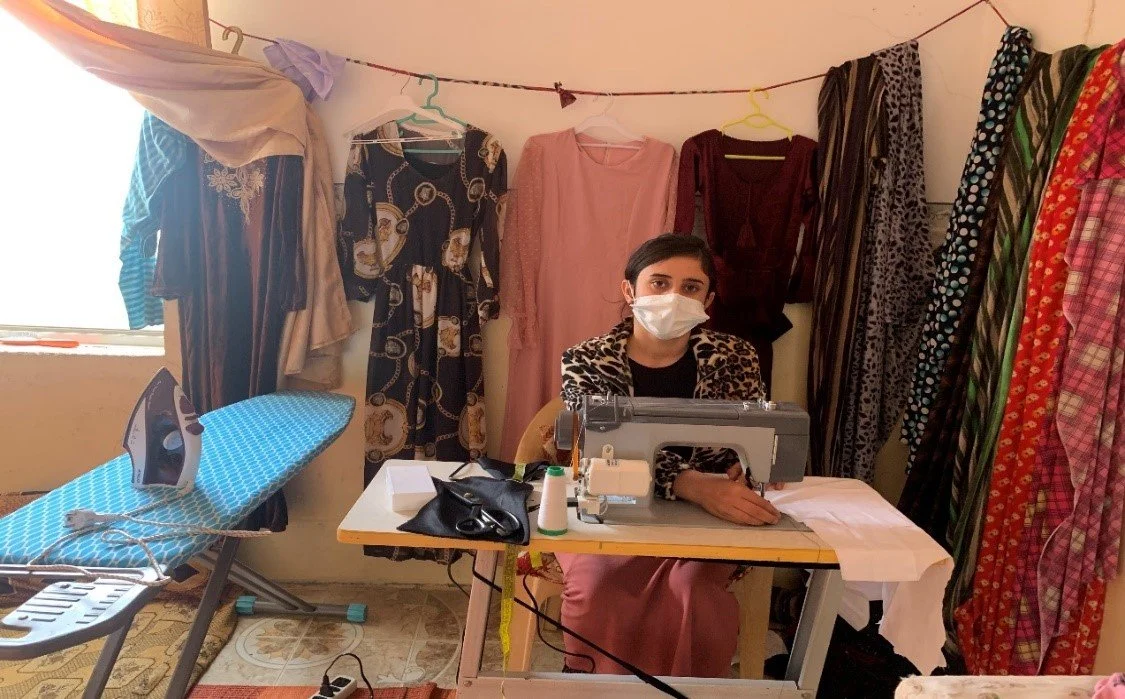
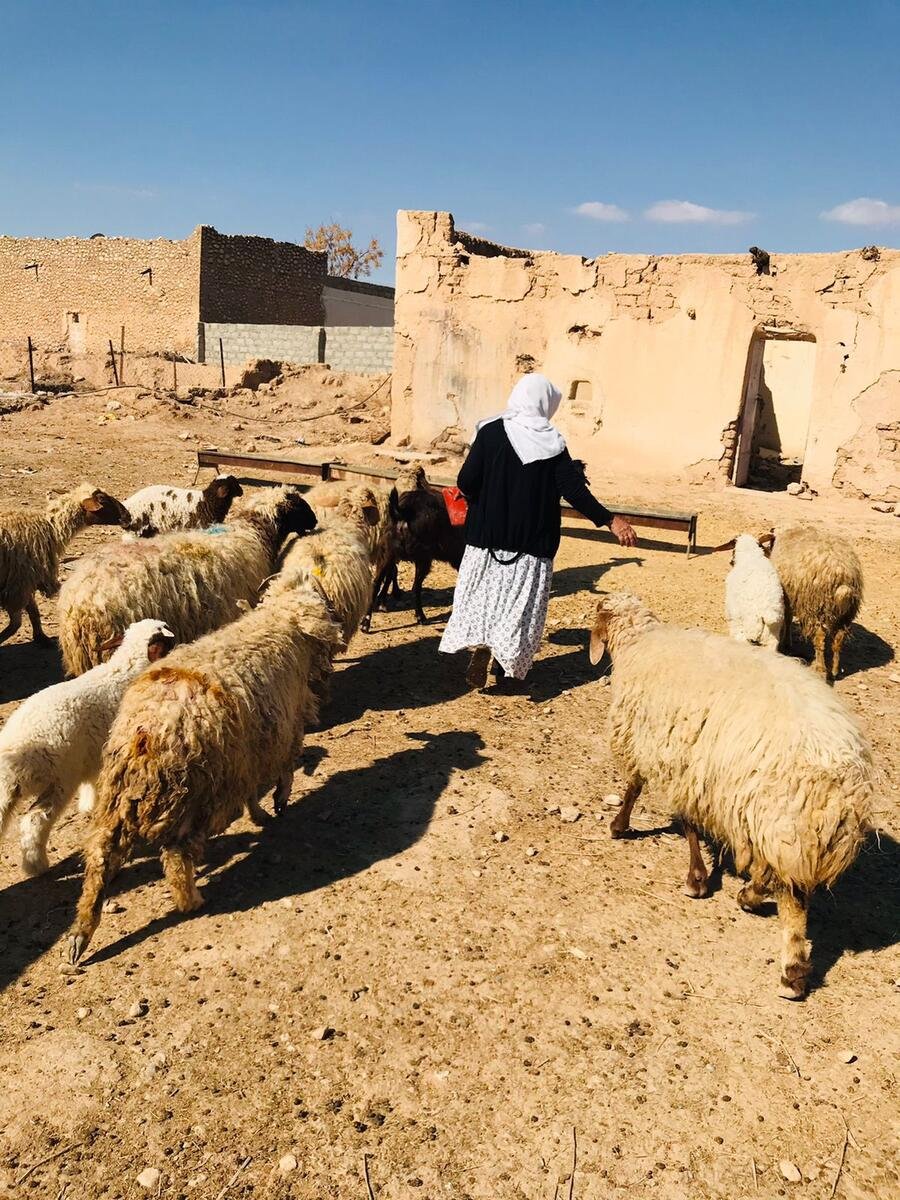
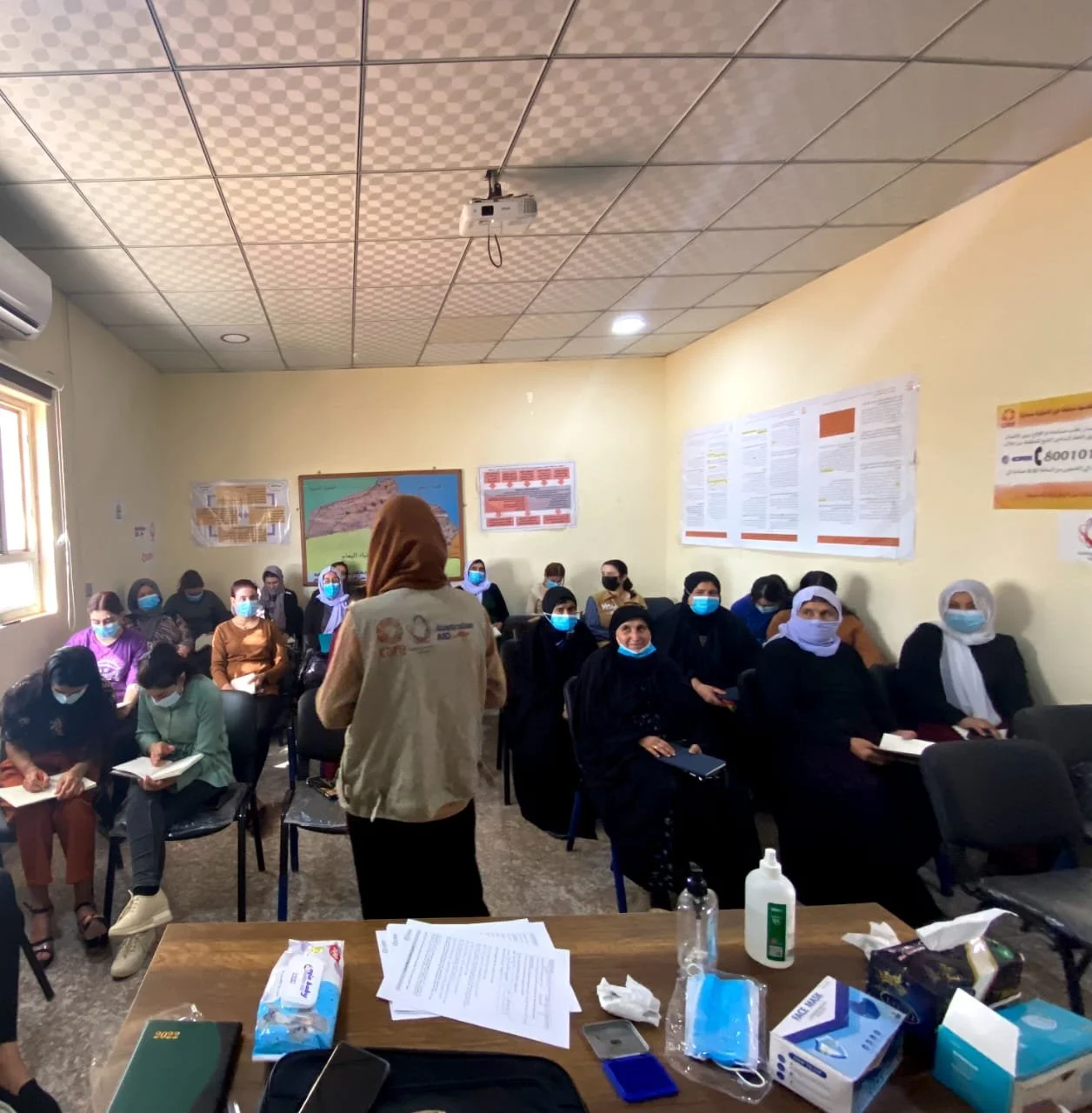
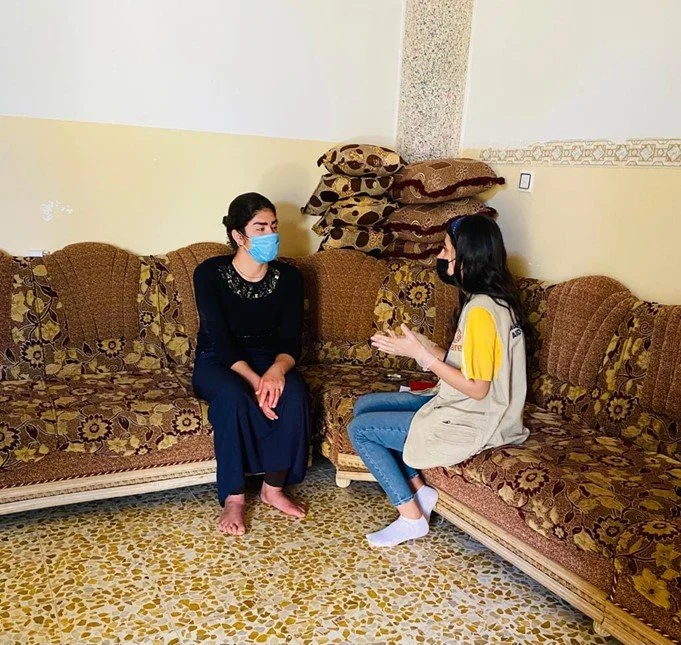
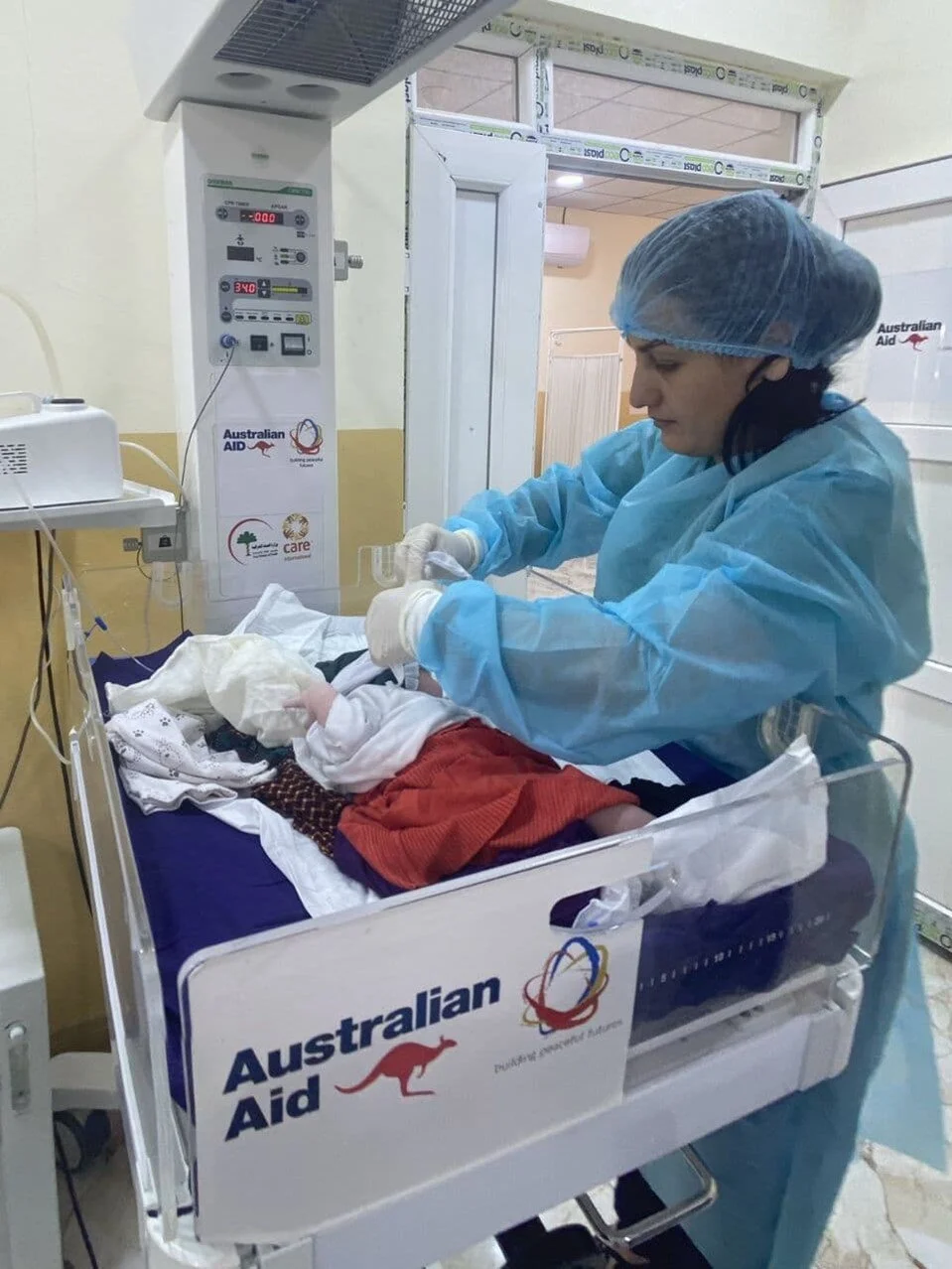
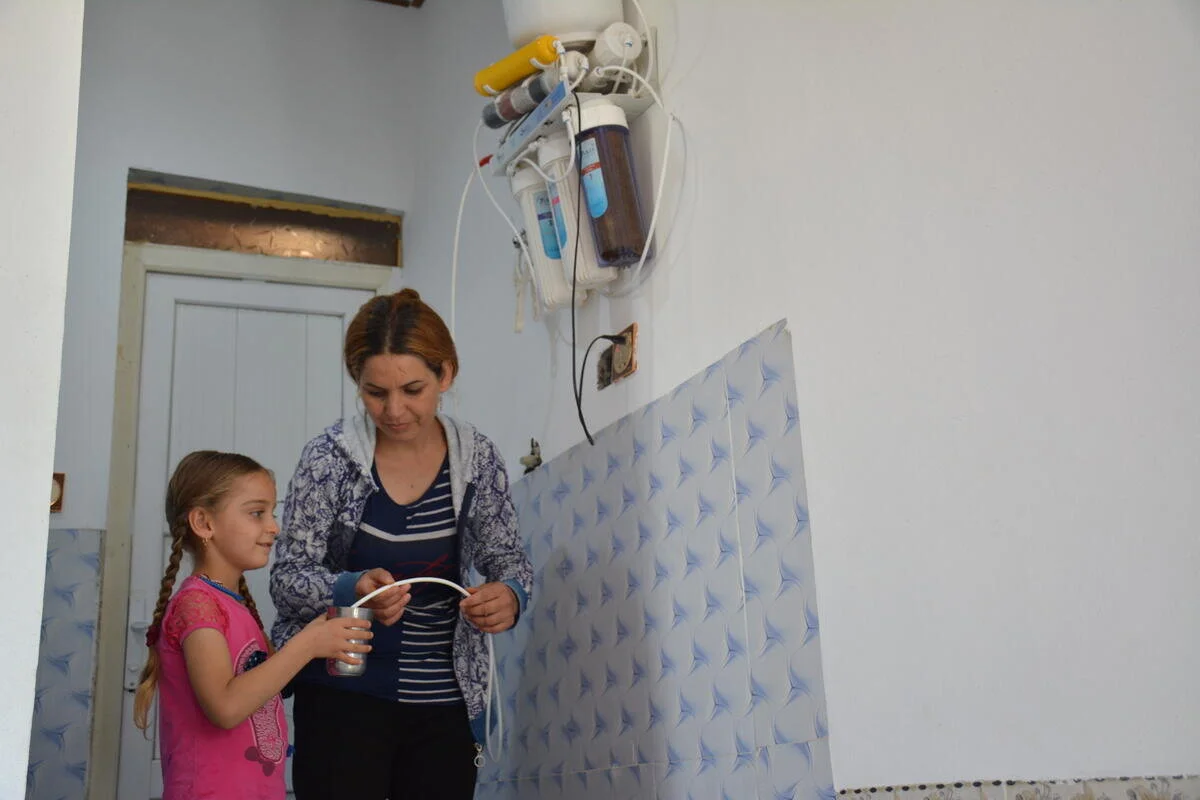
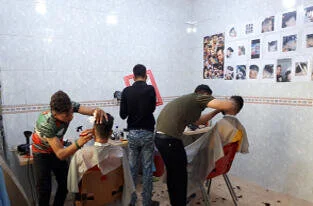
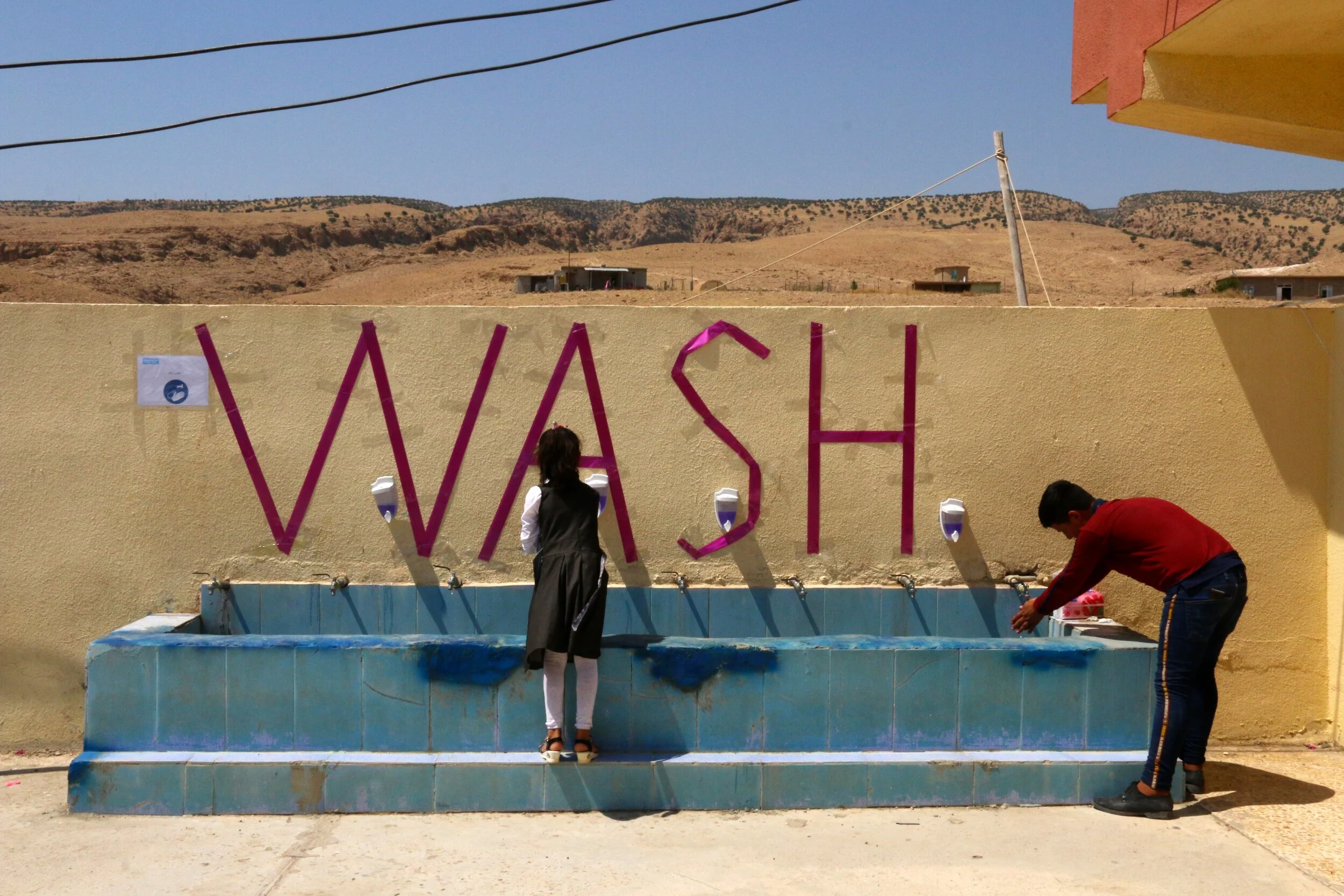

In Iraq, AHP partners are working to build more inclusive communities so that everyone is afforded the same opportunities. Sonya’s doctor told her she needed to exercise to help her overcome her illness, but in her small community in Sinjar, women were not able to access gyms. Read what the Building Peaceful Futures project did to change this…